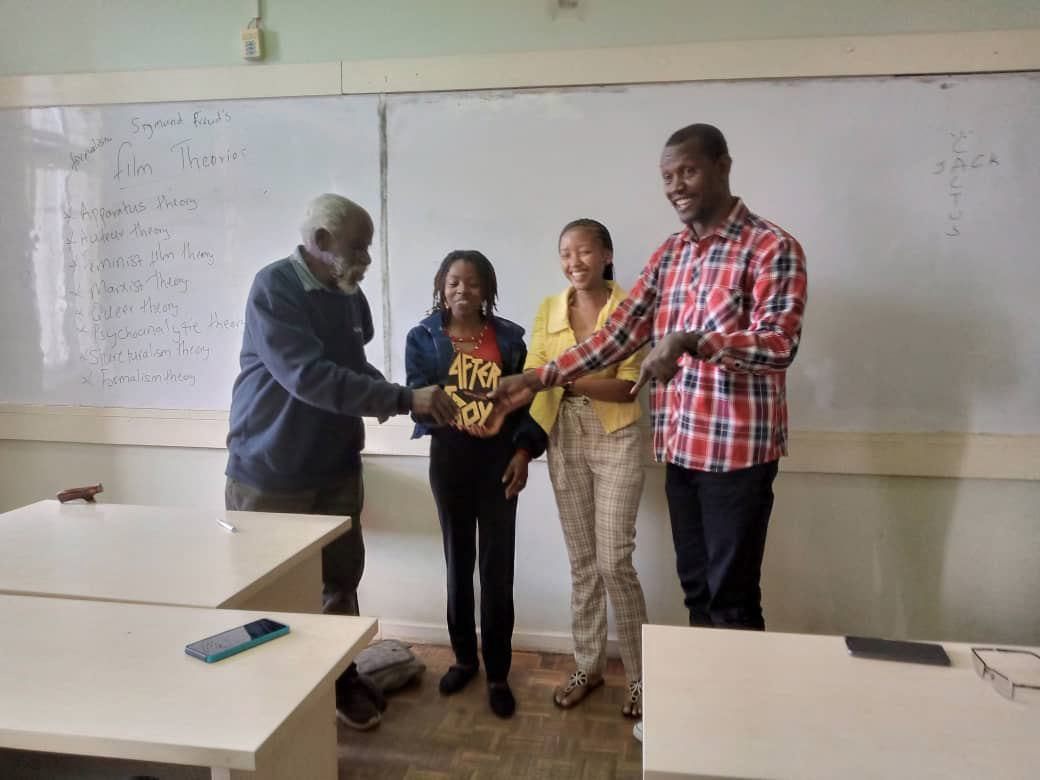Prof. Taban Lo Liyong who is currently on a literary book launch of After Troy, in Nairobi Kenya, has officially declared the literary barrenness of East Africa as over. This news was welcomed by his contemporaries, former students, professors and literature enthusiasts.
Prof. Lo Liyong made this declaration while visiting the University of Nairobi, the place where he first launched his literature career in 1968. Prof. Taban Lo Liyong graduated from Howard University in 1966 and went to the University of lowa to study creative writing. He was the first African to get the Master of Fine Arts in creative writing from the University of Iowa in 1968. This current book, After Troy, is a lifelong project which he first started writing in 1968, during his Fellowship year at Iowa University. Thereafter he returned to Nairobi and embarked on a long career of writing various works of poetry, essays and short stories.
Prof. Taban Lo Liyong met with current students of the literature department and their professors at the University of Nairobi. He encouraged the students that in addition to dissecting literature works, they ought to produce and author their own works. Prof Taban Lo Liyong was encouraged by the positive feedback of the current literature students. They remarked that his book length poem After Troy was written with clarity that could be easily comprehended compared to many literature works of the time. In fact, two students recited The Penelopey chapter from the book After Troy in a live performance at the book launch.
Taban Lo Liyong is concluding on his early declarations from 1965 whereby upon returning from Howard University he dismissed East Africa as a literary wasteland, “a dry, desolate, barren stretch of wilderness where literature has simply refused to sprout.” The opinion piece was published in the Kampala literary journal Transition in 1965 titled “East Africa, oh East Africa I lament thy literary barrenness.”

